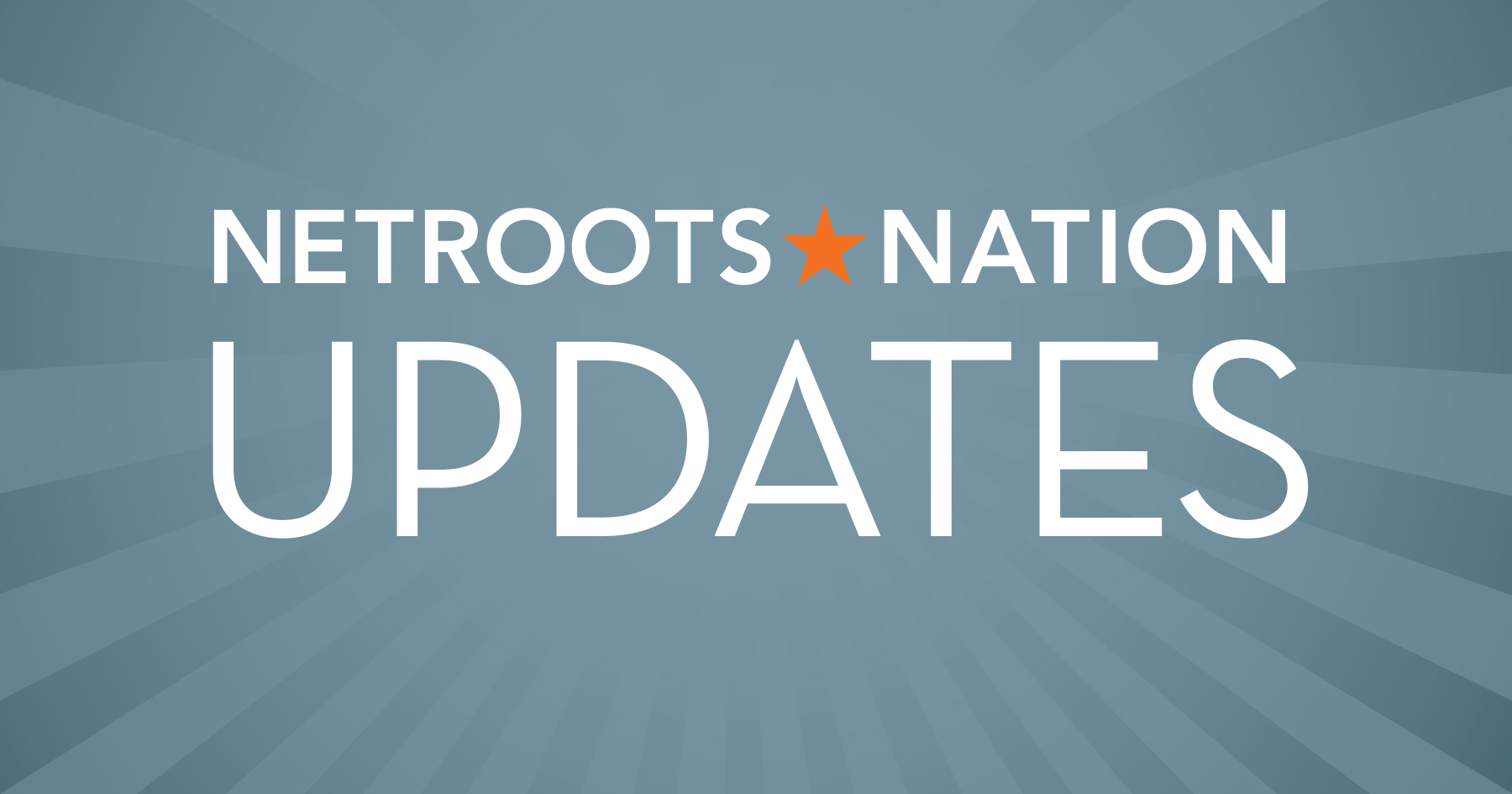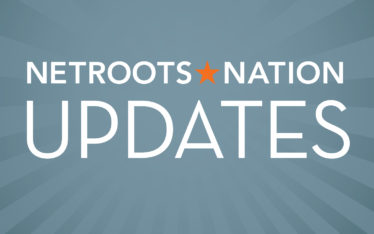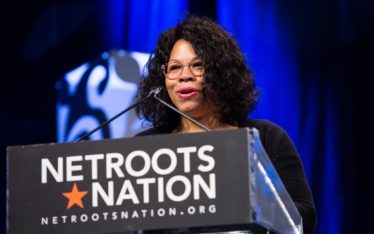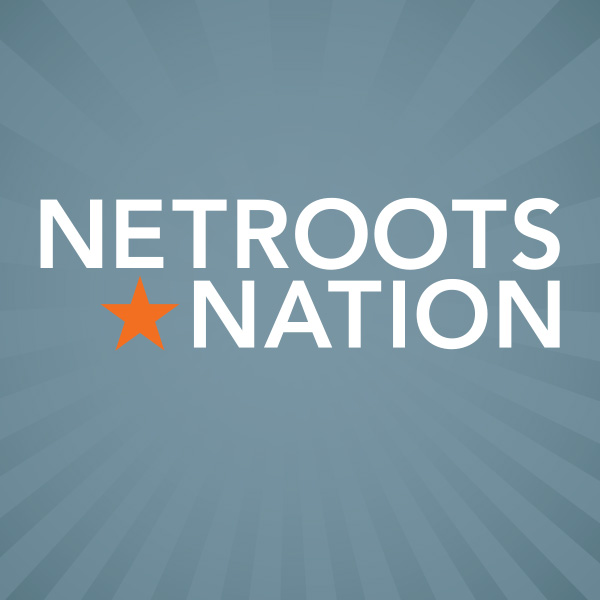When we announced St. Louis as our next location for Netroots Nation 2016, we shared with you our goal to center the conference on racial justice and lift up the work of local activists there. Today I want to share how the past two years have helped prepare us for that task.
Two years ago, we spotlighted local activism in a big way at our conference in Detroit. A few months before Netroots Nation was to take place, the City of Detroit began shutting off water to low-income residents in what United Nations investigators denounced as a human rights violation. We decided to make room in our agenda for a rally in support of local efforts to stop the shutoffs, as well as give local activists space to do a plenary session on the situation there.
For the first time ever, our agenda included direct action and a significant amount of content on local issues. After many of the reporters who came to cover Netroots Nation wrote about the shutoffs, we realized we had a unique opportunity to deliberately make local activism more central to our conference planning.
After Detroit, we decided to double down on our efforts to center the conference on local activism and go even deeper by highlighting key issues there. That meant relying on local activists to tell us what was really happening on the ground.
During an early staff/board trip to Arizona in which some of our local partners took us to the border, we realized that what we knew as a staff about immigration was limited and that we had a lot of listening and learning to do. In the months leading up to the conference, we spent significant time talking with local activists about what issues were most important, how those issues should be framed and how we could help amplify and support their work.
And we learned a ton—not just about immigration and related issues but about the impact our conference can have when it is centered on local activism.
For Netroots Nation 2015, we worked with local partners to create strategic actions and programming leading up to and during the conference. We created and shared videos telling the stories of activists on the ground; we made Puente’s anti-Arpaio march/rally a conference-wide event; and we held a border delegation trip on Wednesday to introduce movement leaders and members of the press to some of the problems in the immigration system.
We worked more deliberately than ever to elevate local voices and stories through panels, trainings and keynotes featuring local activists. We provided 250 conference scholarships—most of them to DREAMers, immigration activists and young organizers of color from Arizona.
While we’re proud of those outcomes, we also understand that we made mistakes last year and that we can do better.
In particular, we could have done more in advance of the conference to create an intersectional narrative about local immigration issues and the cross-sectional issues of police brutality and private prisons that leaders within the Movement for Black Lives were working to foreground at the time, as more and more incidents of police violence were coming to light.
Part of becoming a stronger, more inclusive space is acknowledging criticisms and recognizing mistakes. The Presidential Town Hall and Black Lives Matter protest—and the broader community’s response to it—was a pivotal moment for our staff. We spent weeks after the conference just listening—getting feedback from attendees, community members and movement leaders about how we can better ensure that Netroots Nation is as inclusive and safe a space as possible and that oppressed communities are welcomed and heard.
The progressive movement writ large is wrestling with how to make sure we are standing up when it comes to truly fighting alongside oppressed communities and leaders who are standing up and aggressively questioning the status quo (eg. structural racism, police brutality, the prison pipeline). And we’re asking the same questions internally as well.
How can we better support the fight against systemic inequality and police brutality? How do we leverage Netroots Nation—and the thousands of voices and levers of power that the conference convenes—to support issues like racial justice in a more meaningful way?
We don’t have all the answers yet. What we do know is that we have a role in bringing voices that haven’t been centered in the progressive movement to a place where they can be elevated. We’re discussing programming ideas, direct action opportunities and outreach strategies with activists in the St. Louis area and will continue to do so in the coming months. We’re also tossing around new ideas, like holding some programming in underserved areas of the city, away from the main convention center, in order to truly serve the full local community.
Local organizers are helping us understand the unwarranted and aggressive police action that plagues the area and how the municipal court system oppresses communities there. They’re telling us about the underground Bridgeton fire that threatens nearby communities yet has received little media coverage. They’ll help us pinpoint what issues are most important to highlight next summer, and you’ll get to hear many of their stories firsthand if you attend next July.
Even as we plan to foreground racial justice issues in 2016, we still plan to cover other issues like economic justice and immigration policy. While we will surely make mistakes along the way, our goal is to shine a light on how our communities and issues interconnect and how we become stronger by acting together in the face of interlocking struggles.
We’re also working to improve transparency in our planning process. Sharing some of this background with you is part of that; we’re also tweaking our panel submission process to give you more opportunities to submit, developing ways to get more community feedback on sessions, and working to ensure underrepresented communities hold more ownership of our programming.
We’re taking our own education as an organization seriously as well. Between now and July, all Netroots Nation staff will participate in trainings on social justice and structural racism from Race Forward, including sessions on racism and its causes, how to effectively talk about racism and change the conversation, techniques for counteracting unconscious bias, and identifying opportunities for advancing racial justice. Continuing education is important, and broadly it’s something we’re going to focus on more internally so we can better shape our programming. We’re excited to be able to grow our knowledge to support the larger progressive movement as we evolve together.
We’ve still got a lot to do before next summer. We’re excited about how things have evolved but know that it’s an ongoing process and that we can always improve. So if you have ideas about what you want to see at Netroots Nation next summer, drop us an email at activist@netrootsnation.org. We’re here to listen.




About The Author
Mary
Communications director of Netroots Nation and Netroots Foundation.